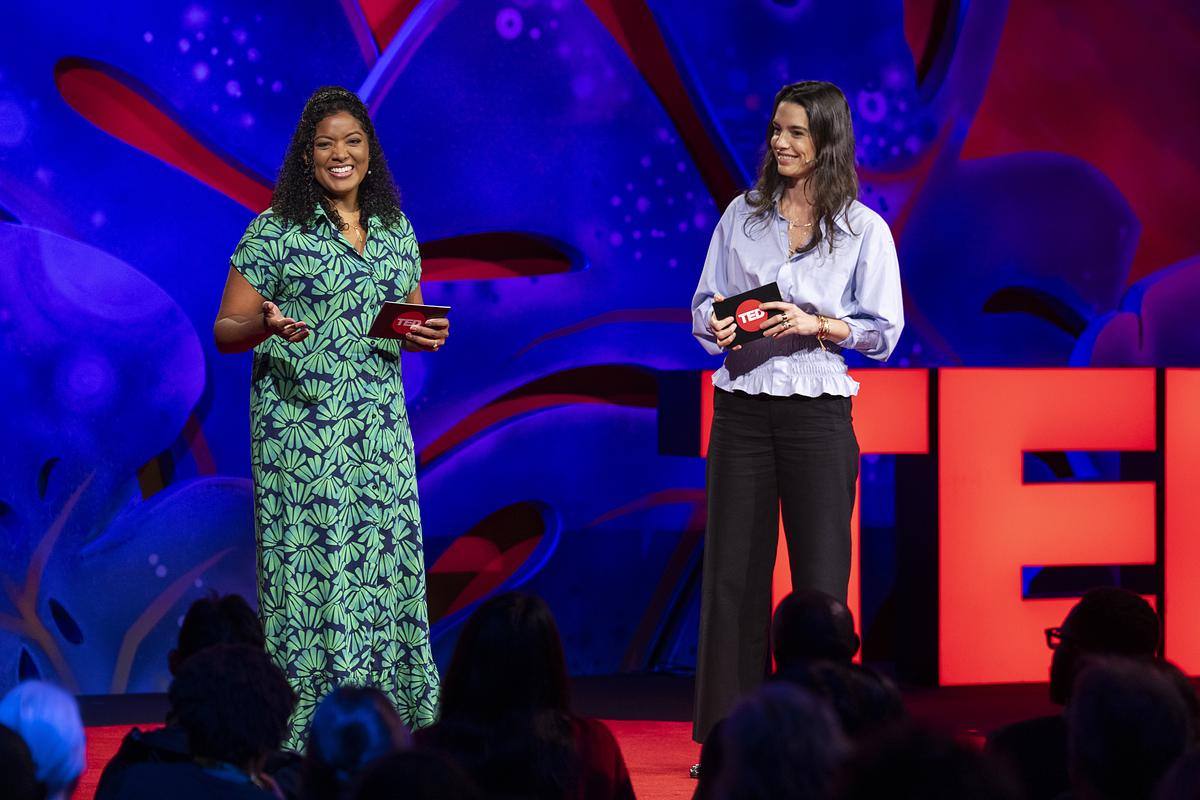
Hosts Rebekah Shirley and Logan McClure Davda speak at TED Countdown Summit 2025 on June 18, 2025, in Nairobi, Kenya. (Photo: Callie Giovanna / TED)
Across the final two sessions of TED Countdown Summit 2025, experts, changemakers and dreamers explored actionable solutions to fix today’s problems, alleviate tomorrow’s and build a clean energy future. Here are some highlights from day 3:
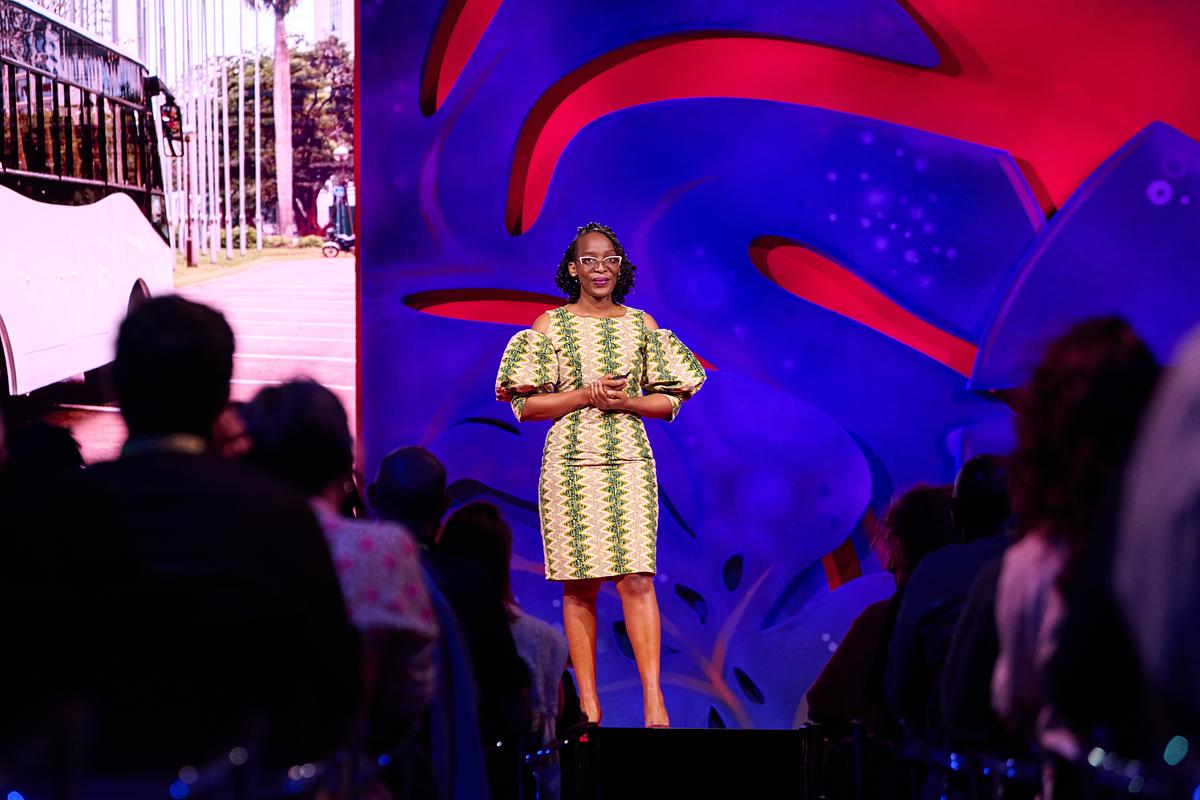
Doreen Orishaba speaks at TED Countdown Summit 2025 on June 18, 2025, in Nairobi, Kenya. (Photo: Humphrey Gateri / TED)
Africa’s electric vehicle revolution is leapfrogging traditional fossil fuel transit. Electrical engineer Doreen Orishaba explores how electric bus company BasiGo is using innovative financing models and locally assembled buses to conquer Kigali’s hills, limiting environmental impact and saving operators money. With 90 percent renewable energy powering these silent electric fleets, emerging companies like BasiGo show how Africa isn’t playing catch-up in sustainable transportation — it’s poised to lead the global revolution with every green kilometer. All of those electric vehicles will need rare earth minerals that have become increasingly important across the world, which is where mining innovator Mfikeyi Makayi comes in. At KoBold, Makayi’s team is building the mine of the future through radical new AI-aided technology that can model thousands of geological possibilities simultaneously, enabling safer, more sustainable mines that maximize resource recovery while minimizing environmental impact.

Tasso Azevedo speaks at TED Countdown Summit 2025 on June 18, 2025, in Nairobi, Kenya. (Photo: Callie Giovanna / TED)
Data-driven mapping is transforming the fight against deforestation. Forester-turned-data detective Tasso Azevedo reveals how collaborative mapping initiative MapBiomas has stitched together 40 years of satellite images into near-real-time, courtroom-ready evidence — turning Brazil’s once-invisible deforestation (and even secret jungle airstrips) into bright, undeniable pixels. By producing thousands of precise deforestation reports weekly, MapBiomas (with support from TED’s collaborative funding initiative The Audacious Project) has helped reduce deforestation in the Amazon by 54 percent and denied $1.5 billion in financing to properties with illegal clearing in the last two years. Now they’re expanding their scope. The goal: to map 70 percent of Earth’s tropical forests by 2030, turning the power of knowledge into protection for our planet’s lungs.
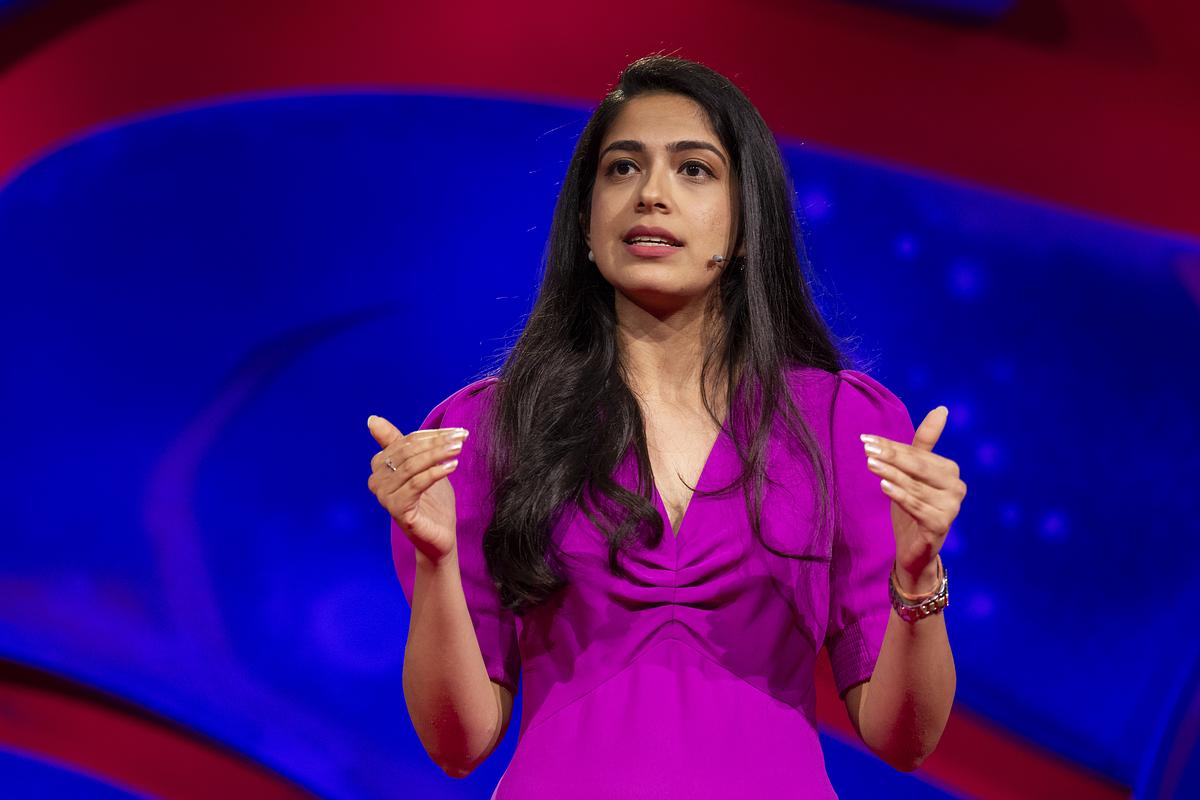
Riddhima Yadav speaks at TED Countdown Summit 2025 on June 18, 2025, in Nairobi, Kenya. (Photo: Callie Giovanna / TED)
Advanced microbes, the potential of geothermal — and how to finance it all. Microbe wrangler Karsten Temme’s gene-edited soil microbes have reactivated nitrogen-fixing genes designed help farmers replace their synthetic fertilizer, opening up the potential to cut environmental harm while raising yields from Michigan to Kenya. Drawing on the spirit of turning legacy know-how into climate solutions, geothermal trailblazer Cindy Taff is redeploying oil-and-gas drilling tools to tap the energy stored in the “deep, hot, dry rock that exists everywhere,” creating 24/7 geothermal power and subsurface heat batteries without waiting for another century of R&D. Scaling living fertilizer factories and next-generation geothermal fields will take capital, which is why finance innovator Riddhima Yadav urges investors to drop purity tests and mobilize the extra $2.5 trillion a year the transition still lacks so ideas like Temme’s and Taff’s can move from promising pilots to the standards of global infrastructure.
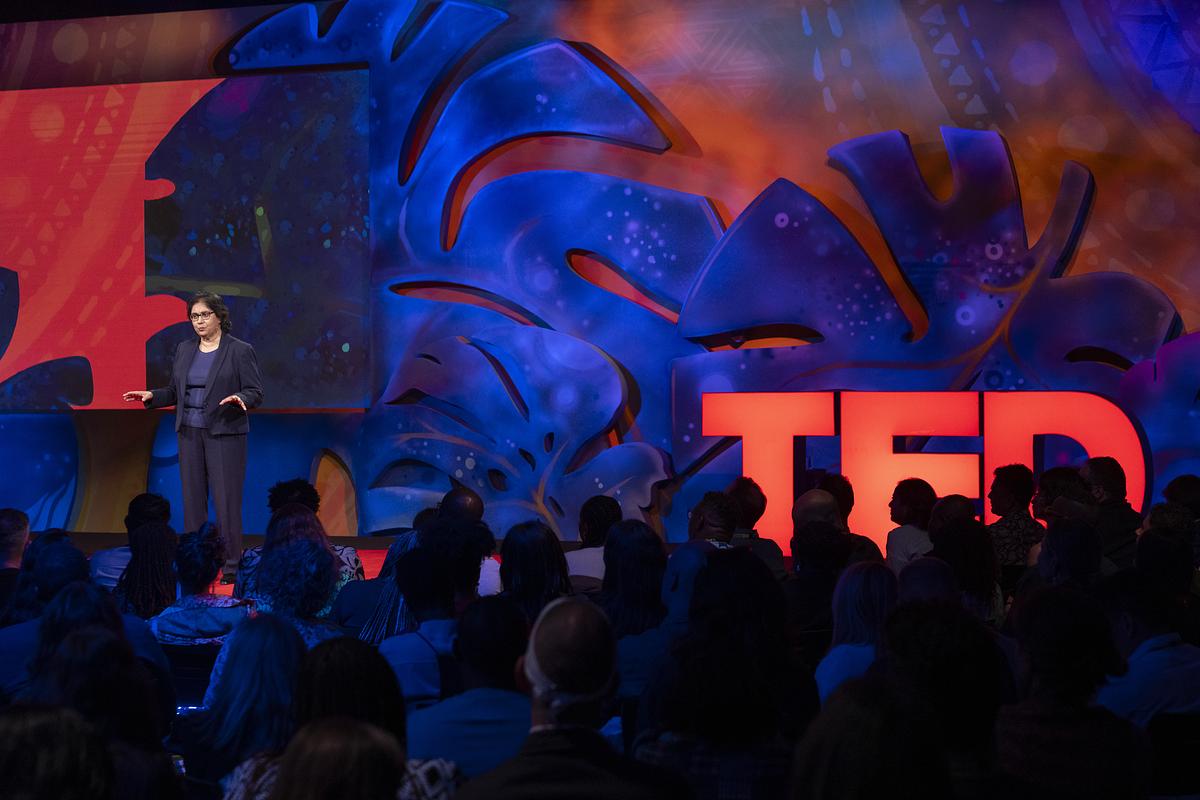
Melinda Janki speaks at TED Countdown Summit 2025 on June 18, 2025, in Nairobi, Kenya. (Photo: Callie Giovanna / TED)
Bold strategies to pay for — and stop — the damages of climate change. Economist Esther Duflo asks a blunt question: Why don’t we tax the world’s richest people in order to pay for climate damages? She proposes a publicly funded redistribution system, financed by taxes on billionaires and large multinational companies, to pay for the costs of climate change on developing countries and provide direct cash transfers to the people affected. She says this “grand bargain” is within reach — one where the rich world compensates the poor, sparking a cycle of global climate action. Climate justice litigator Melinda Janki approaches climate action from a different angle, using the power of law to protect nature and Indigenous communities. She describes how legal victories against ExxonMobil in her home country of Guyana have set powerful precedents that make drilling harder and costlier. Oil companies may seem invincible, she says, but they are legally vulnerable. With courage, persistence and the strategic use of law, people can fight back and win.
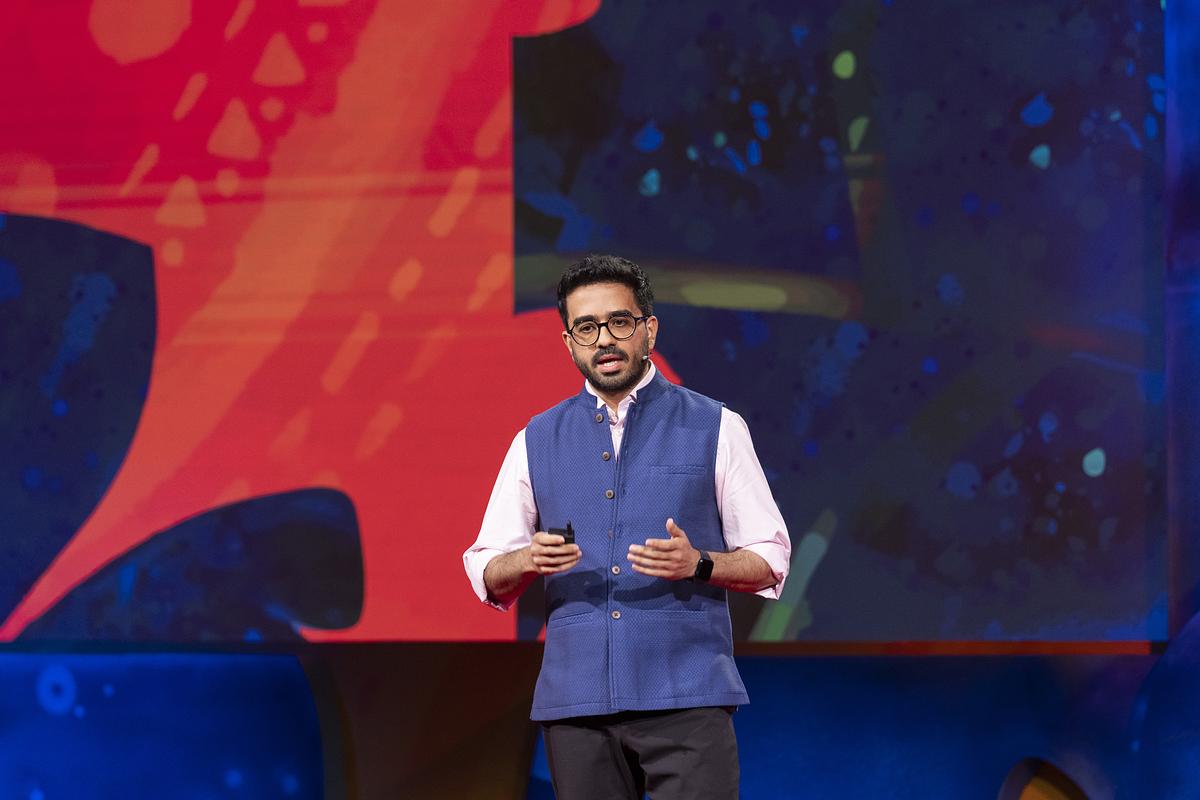
Anshul Tewari speaks at Countdown Summit 2025. June 16 – 18, 2025, Nairobi, Kenya. Photo: Callie Giovanna / TED
Systemic change in all forms, from empowering young people to tapping into ancient wisdom. For social entrepreneur Anshul Tewari, what began as a personal blog became a movement of change-making stories. He shares how Youth Ki Awaaz, a platform for Indian youth to write, share and speak out on social issues, harnesses the power of young voices. The platform has expanded into climate advocacy, proving that making impact can be a daily, accessible habit for young people everywhere. Ecological futurist Tariq Al-Olaimy also helps people rise to their best selves, but in a different way: by turning to spiritual wisdom. He explores how faith communities, often overlooked in the climate movement, offer powerful tools for navigating environmental collapse with moral courage, resilience and a spiritual compass.

Akoth Jumadi & MR. LU* perform at TED Countdown Summit 2025 on June 18, 2025, in Nairobi, Kenya. (Photo: Humphrey Gateri / TED)